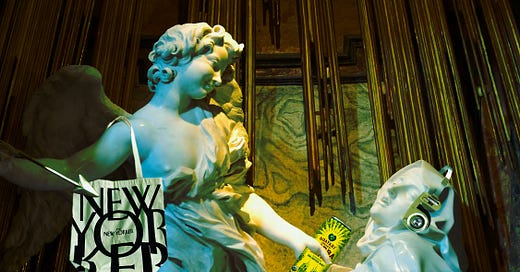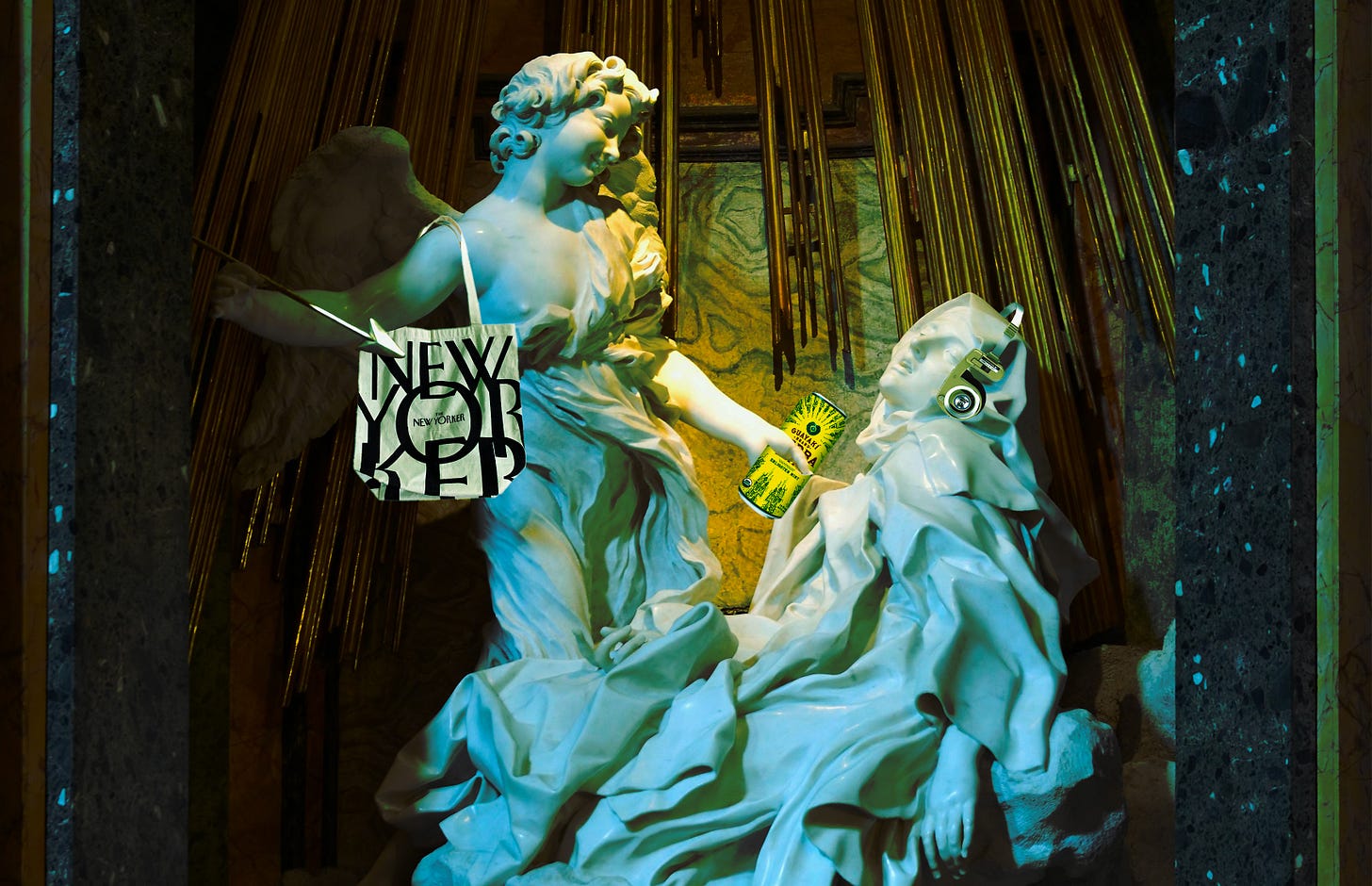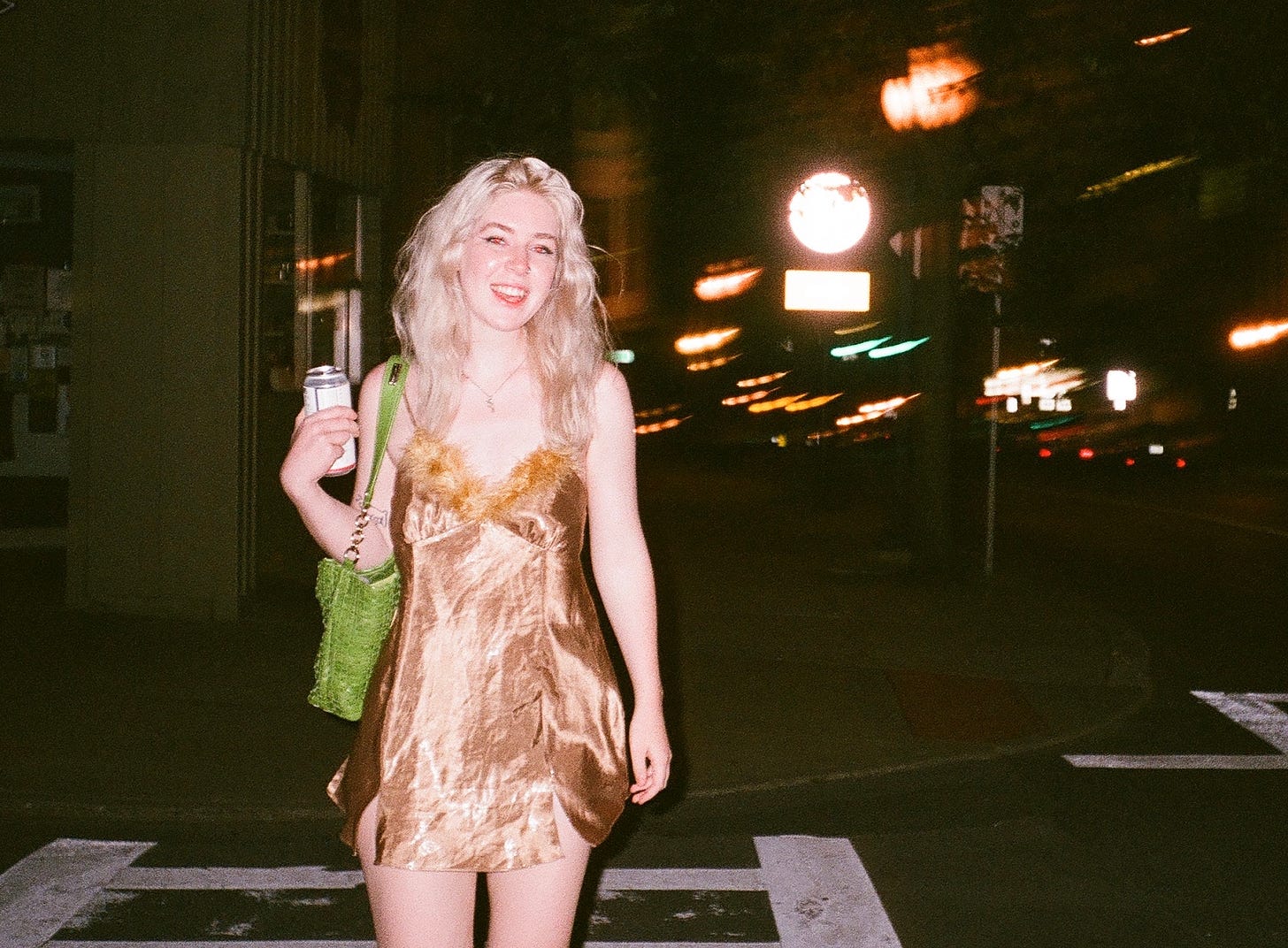My Year (and a half) of Celibacy and Revelation
I didn't have sex in my early twenties. It was both valuable and very boring.
I became a born-again virgin two days after my twentieth birthday. Two days after that, I sat in the CVS parking lot inside my fifteen-year-old Honda sedan and swallowed two pills of Azithromycin with one big gulp of Diet Coke, before driving myself home and being escorted to a mental institution by three members of the Saratoga Springs Police Department.
I suppose “born-again virgin” isn’t the right word. There was no moment of religious ecstasy or feeling that I was reclaiming something or becoming someone. There was, however, a nearly year-and-a-half long period of my life where I did not have sex. It was spurred on by a particularly rough series of events in the six months prior—I was dumped for the third and final time by my very mean, very charming, too-old boyfriend; I lived alone in a studio apartment for three months during the strictest lockdown; I was raped; I had enough manic blackouts to have to spend a week under the supervision of my brother, Aidan; I was very cruel to some very kind people in a mangled effort to gain control in my life; I found out that my sexual assault had left me with an untreated case of chlamydia; I tried to kill myself somewhere between Plattsburgh and the Canadian boarder. I handled it all well until I didn’t, falling apart around the same time I stopped believing in the phrase “at least things can’t get any worse.” I can’t give much more detail about that time in my life, in large part because it is deeply personal, in larger part because most of it is not my story to tell.
In the psych ward I ate black beans and grapes and thought about how no one would want to have sex with me for a long time. When the nurse asked me how I felt about having chlamydia, I shrugged and told her, “if you’re going to get one, it’s probably your best bet.” She agreed. I read The Collected Works of John Cheever cover-to-cover, I talked to Adam on the phone, I wondered if the hospital food would make me lose weight. It didn’t. I returned to the unconfined world largely the same. I would spend the summer celibate and remain that way though my senior year of college and into the following autumn. A year into my abstinence, I would joke with my friends and describe myself as “involuntarily voluntarily celibate—like, I would sleep with anyone, it’s just there’s no one I want to sleep with.”1
Just because someone likes having sex with you does not mean they like you or ever will. I spent a long time knowing this and refusing to believe it.
From the ages of twelve to fourteen, I learned about sexuality from three places: Tumblr, J.D. Salinger novels, and the Netflix original series Orange Is The New Black. For the next several years after that, I believed that the world was reactionary and unilaterally scared of women’s sexuality and thus the appropriate political response was to be sexy on purpose. After all, the feminists of the 1970s fought very hard for The Pill and in their honor we might as well get on it and make good use out if it. If you asked eighteen-year-old Charlie “what is sex for?”, I would have written you a twelve-page paper with Chicago-style citations of Foucault, Barthes, and bell hooks. If I had answered honestly, I would have said: sex is for making you feel wanted, making you feel skinny, and making people want to spend time with you. I enjoyed sleeping with beautiful and interesting people under the assumption that their participation meant they thought I was beautiful and interesting, too. I have long been a surreptitiously serial monogamist, probably because I hold the belief that if I am seeing someone then there must be some aspect of my presence that holds value. I am often a jealous and insecure and petty person and it would be dishonest to leave out the fact that I enjoy the feeling that someone has chosen to be with me and not anyone else because that must mean I am special and unique and attractive and compelling.
It is difficult to discern the difference between sexual expression and sexuality. There is an awful lot of pressure to have a “liberated” sexuality, to be pushing boundaries, to free oneself from the conservative, Bible Belt attitudes about sex. It is very easy to think that if Republicans are preaching abstinence until marriage, casual sex is then a wholly political act of resistance. There is something distinctly unnerving about how prevalent this rhetoric is in places like liberal arts colleges, where there are two women for every straight man and a general culture of competitiveness over one’s leftist personal-political purity.
I learned a lot in my year and a half of celibacy. First and foremost, I learned that plenty of people I knew weren’t having sex. I would be at the bar, filled with enough overpriced mojitos2 to become overly familiar with acquaintances, and offhandedly mention how it had been a year or more since I slept with someone. On more than one occasion, they would respond that they were in the same position. In a Season One Sex and the City episode, thirty-something Miranda reveals that she is approaching three months without sex, the longest it’s been since she became sexually active.
As an academic first and foremost, I conducted a scientifically sound quantitative research survey (a Close Friends Instagram story and a few text messages to my friends who failed to respond). From a sample size of thirteen 22-24 year old city-dwelling, creative types,3 the average answer to the question “What’s the longest you’ve gone without having sex since you became sexually active?” was just over 14 months (excluding an additional two respondents who said they are not and have never been sexually active).
Celibacy is a lot of things. One thing it is not is “fun.” It is very easy to find someone to sleep with and briefly feel validated and smug and confident. You don’t get validation from not sleeping with people.4 But maybe that’s the most rewarding part of it all, the sense of discipline, a unique reverence for one’s own body. It’s like giving up online shopping, or choosing not to overshare when it would have been socially acceptable to do so; nothing wrong with the alternative, but there’s a timeless mystique in denying yourself indulgence.
I wish I had some brilliant, a-ha reflection on celibacy that I could impart onto the world. I was actively abstaining from sex for around half a year, enough time for the hardest and most uncomfortable moments to become The Past. After that, I was more or less ambivalent. I didn’t want to be “celibate,” but I also didn’t want to start having sex again just for the sake of having sex again, just because it was what I was “supposed” to be doing with my early twenties. It was strange how novel this level of intentionality felt—I was never particularly licentious before my celibacy, but I also wasn’t sleeping with people because I wanted to feel close to them or connected to another person. Once I really, really understood my body as the place that bore witness to all of the joy and hope and anger and sadness that has been inflicted upon it, I wasn’t particularly interested in sharing that with people I didn’t feel close to. I don’t really want to sleep with anyone I couldn’t imagine picking me up from an inconveniently-located airport.
Being intimate with another person for the first time after those sixteen months was absolutely terrifying. Why does it feel so annoying and saccharine to talk about sex as an act of intimacy or closeness? I don’t have any shame about my sexual history and I certainly wouldn’t say I “regret” it. I learned a few lessons, met some interesting people, observed things about myself and others. But I’m also so incredibly glad I made the choice to feel totally, actively in control of my body in a way that I hadn’t before. I am so glad I was able to become sexually active again in a moment when I knew that I was with someone who understood me and saw me as a complicated person. I didn’t have any expectations that we would date or fall in love or get married and grow old together, just that I would feel comfortable and conscious.
I think this period of celibacy was one of the best things I’ve ever done for myself, and I’d encourage everyone to take an intentional period of abstinence at least once in their 20s just to see what they learn. And, in the words of Johnny Simmons in The To-Do List, "Sex is a big deal, but it's also not a big deal. Don't get me wrong, it's a big deal. But it doesn't have to be such a big deal.”
(This is the part of the essay where I have to explicitly say that I do not think casual sex is evil and I do not care what other people do with their bodies and that I am only speaking about myself and my own thoughts and opinions.)
I know! I know! Bartenders hate it. In my defense: It was summer. I had just turned 21. Mea culpa.
This was an embarrassing description to type and I will apologize for how embarrassing it sounds. It simply functions to establish that I am asking people who are in environments where casual sex is very normal and common.
Except, I guess, for misogynists and holier-than-thou types, but they seem to be altogether empty people anyways.







I adore everything you write! I really really related to the part about understanding my body as something that witnessed everything I’ve gone through. For a long time I very consciously split my body from my brain so I could have casual sex and “enjoy” it. It’s been almost a year since I’ve had sex and during that time I’ve been able to connect with my body and see it as my own. I’m entirely disinterested in casual sex right now (maybe it’ll change someday I’m still very young) and I’m really grateful the mundanity of my sexless life brought me there. It is sooo boring sometimes but has made me much more aware of what my body does for me and how I related to it which is completely worth it
I really love this piece. What you write about pressure to have a “liberated” sexuality in response to conservative and religious constraints around sex really hit home. It took me a long time to look at celibacy as something that could be a positive personal choice but once I chose it without feeling like I was missing out on the way I was supposed to be spending my early 20s, it felt healthy and allowed me to heal from past experiences. I don't think you can sum it all up better than: "You don’t get validation from not sleeping with people. But maybe that’s the most rewarding part of it all, the sense of discipline, a unique reverence for one’s own body."